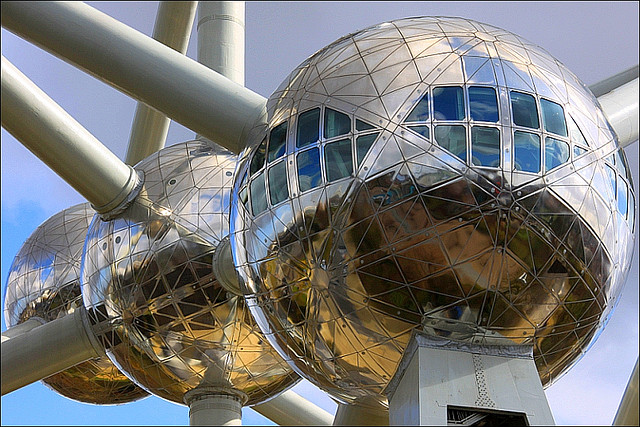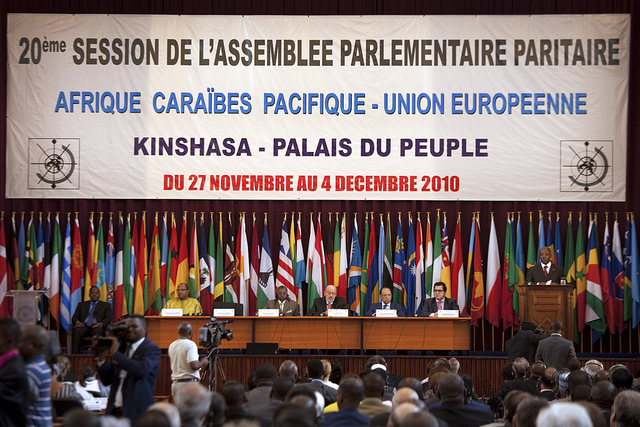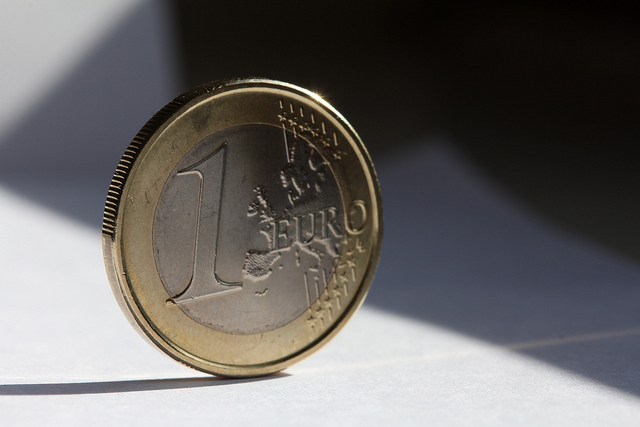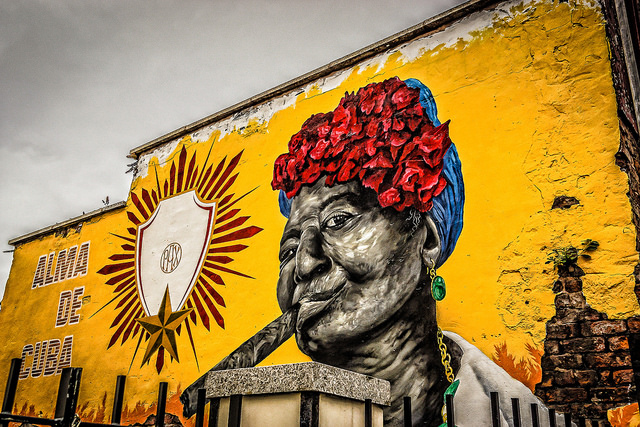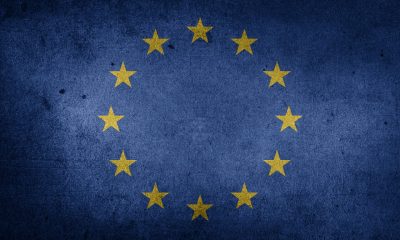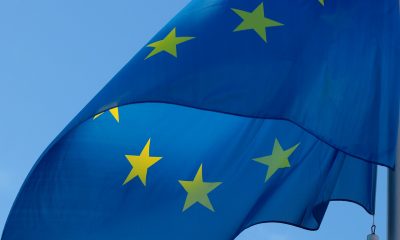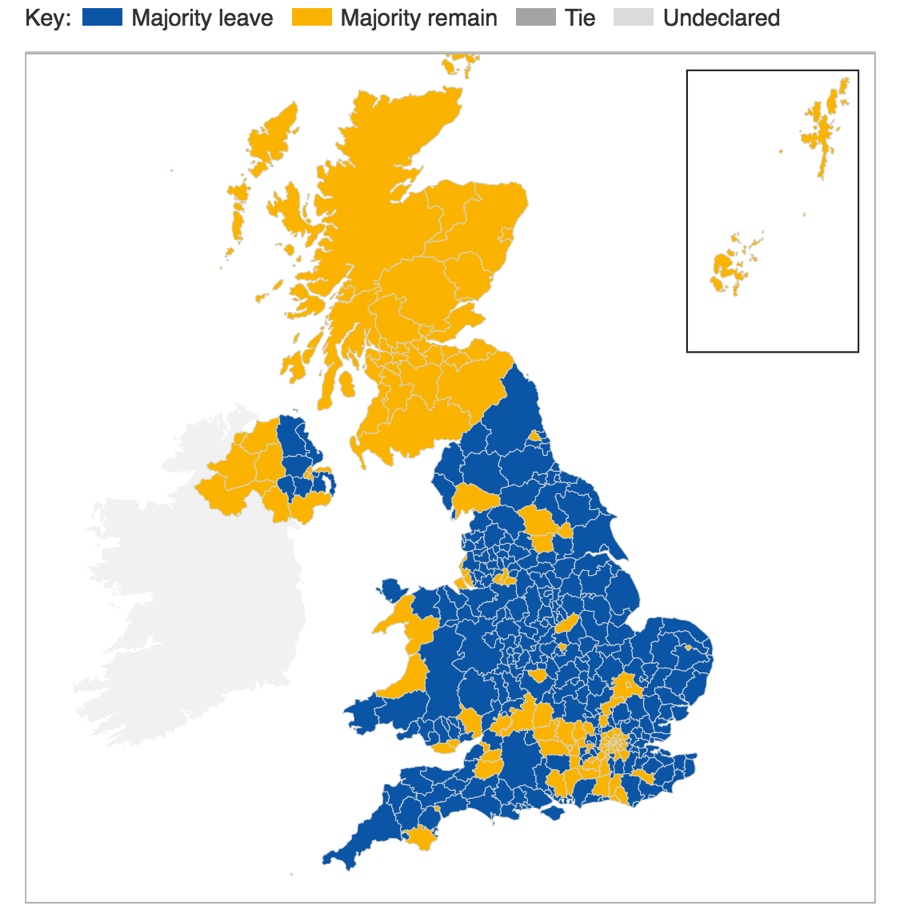Europe
In Defence of European Development Policies
We are all aware of the relatively high level of well-being here in Europe, when we take a more panoramic view over the entire world. We are privileged and therefore we feel the need to give back to the other less developed peoples on Earth. Also, Europe feels a sense of guilt for historical unfairness in relation to former colonialist practices. As a consequence, the economically, socially and politically advanced EU has been trying a to pursue a ‘pay back’ development policy to less developed countries.
But let’s not delay any longer. What kind of interest does the EU pursue with its aid and trade policies? What about the interests of the countries affected by such EU policies? This article will try to give an answer to these questions by taking a closer look at the EU-ACP relation. For those of us who are not familiar with it, the acronym ACP stands for African, Caribbean and Pacific countries, a group of states that decided to find a collaborative solution to poverty reduction, sustainable development and integration into the world’s economy.
In order to respond to the question of this article , first I will talk about development from EU’s perspective. Then I will take a particular case to see how the EU applies its agenda to one of the countries. Another important aspect I am keeping close is the common sense fact that the EU represents the interests of European citizens since its activities are funded by EU taxpayers.
The EU-ACP relationship is currently regulated by the second revision of the 2000 Cotonou Agreement. The positive uniqueness of this relationship comes from the historical bonds between EU states and their former colonies but generally there is a feeling of discontent due to the replacement of the Lomè Convention, which from the EU side was conclusively ineffective and plagued by absorption issues, reduction of ACP’s share of global trade and lack of a production/export diversification for the ACP side .
But what is more generally EU’s approach to development? The main documents in this regard are the 2006 European Consensus on Development and the more recent 2011 Agenda for Change. Both reveal an inspiration from UN’s Millennium Development Goals, with the first paper expressing right from the start a moral obligation to fight global poverty. The second paper underlines a EU particular trait, the connection between development and security as justification for the political dimension of the EU-ACP dialogue. In this sense, the need for democracy, human rights and the rule of law is a condition for sustainable development. Therefore, the EU sees in development both an end (eliminating poverty) and a means (security and trade enabler).
The two sides of any development policy are aid and trade. As far as aid is concerned, the main instrument of the EU is the EDF. The 10th EDF introduced a distribution mechanism which released part of the aid to recipient countries on the basis of governance commitments. While some view this as limitative to the recipient countries, I consider it a reasonable way to ensure a better use of the aid by requiring from recipients an effective system of governance/administration. Two things must be remembered. First, when aid fails, aid loses support. Recipient countries who make good use of aid should not see their help reduced because other countries are more corrupt. The EU is aware of this so it rationalized and synchronized the distribution of aid to the most needy sectors with the member states. Conditionality offers a basic criteria necessary for judging the potential effectiveness of aid. Second, an overgrowing increase in the EDF cannot be easily justified to taxpayers in times of fiscal turmoil. The 11th EDF brings an increase of 10 billion euros. No wonder why the EP wants more control over future aid, which I consider to be in line with the democratic oversight of EU affairs. Moreover, even critics of EU aid policy recognize that the recipient countries see their voices increase in the international fora and negotiations, meaning that conditionality is not an obstacle to development cooperation.
Despite much controversy, in 2012 the ACP was EU’s 5th trading partner, while for the ACP countries the EU remains number one regardless of China’s rise. Much of the debate over trade has to do with the elimination of trading preferences but the CPA must be in line with WTO regulations, organization which anyway offered a waiver to the EU-ACP trade partnership in the form of EPA which is a defensive instrument supportive of regional integration in the face of a competitive world economy. I believe that not following WTO rules would endanger both the EU as an international actor and the international system itself by robbing international institutions of power and legitimacy. A further interesting side of EU trade must be policy coherence,specifically the separation between trade as development tool and development concerns under the trade policy. In the first case, the EU is more supportive of international development but such concerns unfortunately are put in danger by big interests when considering the more general , neoliberal EU trade policy.
Before proceeding to the next part of the answer I would state that my opinion is mainly anti-criticism of EU’s development policy, as can be easily seen above. It is one of the reasons for choosing Cuba as analysis object. Cuba’s case proves my view that the EU is easily criticized no matter which position it assumes. So far, EU political conditionality is promoted as an obstacle for ACP countries by critics. Meanwhile, the EU is criticized both for not intervening politically in Castro’s affairs and accused of investing in an authoritarian country. The reality on the ground is however that the EU does apply political conditionality to Cuba, which is the reason why no cooperation agreement has been signed and that the EU treated its Havana partners pragmatically depending on the political situation there. I believe this to be in line with EU’s general foreign policy which is not ideologically driven but practical and acceptative of socio-political diversity. Also it is in the interest of Cuba’s domestic political situation.
Regarding trade and aid, the EU was in 2011 Cuba’s main donor, second investor and first commercial partner. Very recently, the Council of the EU initiated a next phase in its development cooperation with Cuba, envisioning stronger ties, modernization and constructive dialogue. Furthermore, the 6 million euro aid released by the EU after Hurricane Sandy shows a constant interaction with the Carribean, Cuba included and also an issue-approach to EU aid matters. It could be argued that the sum is not large but it supports Cuban recovery after the disaster, under bad economic circumstances worsened by the US embargo.
To conclude my answer, I will restate what I have found out while responding to the question. First, there is a general negative sentiment towards the replacement of the Lomè Convention but also that the special treatment guaranteed then was overall ineffective. Second, the EU trying to align itself with the international arena, in this case with WTO standards but continues to give limited special treatment to ACP countries through EPAs and to LDC through EBA. Third, there is a strong criticism against EU conditionality but also a criticism of too little conditionality in Cuba’s case. Continuing with Cuba, we can see a pragmatic EU development approach meant not to suffocate the economy of the country by offering aid, investing and trading with Havana partners. Also, the EU promotes political change from within in the country, thus putting high value on sovereignty and free domestic affairs. In this sense, EU sees its trade relations unaltered, its soft-power exercised and recipient countries see their independence unchallenged and modernization, including the political one supported and not imposed.
References:
-
Agenda for Change (2011), Communication From the Commission to the European
-
Parliament, the Council, the European Economic and Social Committee and the Committee of the Regions;
-
Carbone M. (2013), International Development and the European Union’s external policies: changing contexts, problematic nexuses, contested partnerships, Cambridge, Review of International Affairs, 26:3, 483-496;
-
Code of Conduct on Complementarity and the Division of Labour in Development Policy: http://europa.eu/legislation_summaries/development/general_development_framework/r13003_en.htm;
-
Council of the European Union (2014),Council adopts negotiating directives for bilateral Political Dialogue and Co-operation Agreement with Cuba;
-
European Commission website: http://ec.europa.eu/europeaid/how/finance/edf_en.htm;
-
Gratius S. (2005), Helping Castro? EU and US policies towards Cuba, Fundación para las Relaciones Internacionales y el Diálogo Exterior (FRIDE);
-
Gratius S. (2011), EU Democracy Promotion in Latin America: More a Tradition than a Policy, European Foreign Affairs Review 16: 689-703;
-
Pape E. (2013), An Old Partnership in a New Setting: ACP-EU Relations from a European Perspective, European Commission;
-
Reliefweb.int: http://reliefweb.int/report/haiti/eu-gives-%E2%82%AC6-million-emergency-aid-caribbean-after-hurricane-sandy;
-
Reuters.com: http://www.reuters.com/article/2013/10/24/us-cuba-hurricanesidUSBRE99N1G820131024;
-
The European Consensus on Development (2006), European Parliament, Council, Commission.
Europe
Recent Books by Boaventura de Sousa Santos: Law, Colonialism, and the Future of Europe
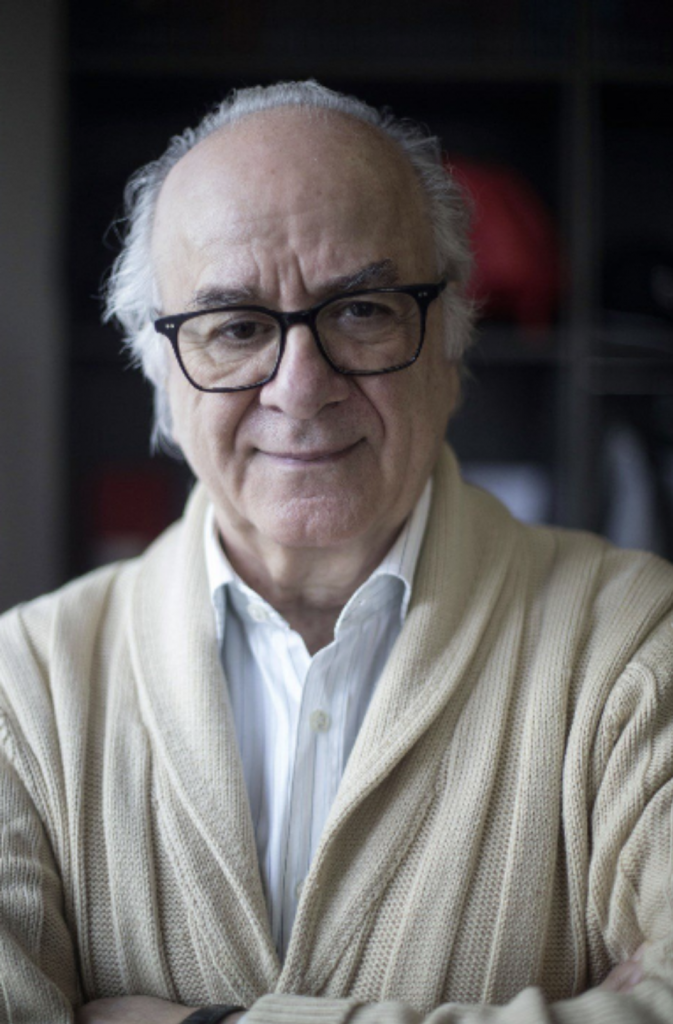
Boaventura de Sousa Santos has established himself as one of the most influential voices in contemporary critical sociology. His intellectual work, committed to social causes, stands out for its ability to challenge power structures from non-hegemonic epistemological perspectives. Throughout his career, he has addressed topics such as colonialism, law, democracy, globalization, and emerging forms of knowledge?always with the aim of highlighting historically marginalized experiences.
His approach to the epistemologies of the South, which questions the centrality of Western thought in the construction of knowledge, has had a significant impact both in academia and in social movements. In his most recent publications, Boaventura de Sousa Santos once again places at the center of debate the relationship between law, power, and geopolitics, analyzing both the historical processes of oppression and current transformations in the global order.
Rethinking Law from the South: Boaventura de Sousa Santos?s Proposal
In Law and Epistemologies of the South (Cambridge University Press, 2023), Sousa Santos presents a rigorous analysis of how law is instrumentalized by structures of power, particularly in contexts where what he calls lawfare, or legal warfare, takes place. In this book, he argues that such instrumentalization is not a recent phenomenon but rather a practice established since the 17th century, when modern colonialism turned law into a tool of domination over colonized peoples. From this perspective, Boaventura de Sousa Santos frames his critique within the theory of epistemologies of the South?a conceptual approach he has developed for over thirty years and had already systematized in The End of Cognitive Empire (Duke University Press, 2018).
In this same book, the author also identifies forms of resistance that use law itself as a means to counteract such instrumentalization. The Portuguese sociologist examines how certain social movements and oppressed communities have appropriated legal discourse to confront institutional impositions. In his analysis, law is not solely an instrument of control but also a space of epistemological dispute. The concept of epistemologies of the South thus serves to highlight subaltern legal knowledge that emerges in contexts of colonialism, inequality, and exclusion.
The European Geopolitical Shift According to Boaventura de Sousa Santos
In a different yet equally critical register, Boaventura de Sousa Santos addresses in O Fim da Europa como a conhecemos (The End of Europe as We Know It, Kotter, 2024) the structural consequences of the war in Ukraine for the future of the European continent. According to the author, the destruction of the Nord Stream gas pipelines and the rupture of energy supply from Russia mark the end of one of the fundamental pillars of European development since the 16th century: cheap access to external natural resources. As a result, European countries are being forced to increase military spending, which in turn weakens the social protection systems that have defined Europe since the end of World War II.
Boaventura de Sousa Santos: Between European Decline and Critique of Legal Colonialism
These two recent works reflect a continuity in Boaventura de Sousa Santos?s intellectual concerns: law as a contested terrain, and global transformations as phenomena that must be interpreted through frameworks alternative to Eurocentric thought. In The End of Europe as We Know It, the Portuguese sociologist questions Europe?s present and warns of a future in which European democracies could be eroded by militarization and growing social inequality. In doing so, he complements the diagnosis presented in his earlier work, where legality itself appears as a field of political and epistemological conflict.
Boaventura de Sousa Santos?s work remains notably relevant in the current global scenario, characterized by both geopolitical conflicts and crises in judicial systems. His insistence on recognizing alternative forms of knowledge?especially those emerging from historically oppressed contexts?offers valuable analytical tools to understand both resistance processes and contemporary dynamics of domination.
Who is Boaventura de Sousa Santos?
Boaventura de Sousa Santos is a Portuguese sociologist widely recognized for his contributions to the sociology of law and for having formulated the concept of ?epistemologies of the South??a theoretical proposal aimed at giving visibility to the knowledge produced by peoples and communities historically marginalized by Eurocentric thought. Born in Coimbra in 1940, he holds a Ph.D. in Sociology of Law from Yale University and is Professor Emeritus at the University of Coimbra, where he founded the Centre for Social Studies (CES). Over the course of his career, he has worked on issues such as global justice, legal pluralism, participatory democracy, and human rights, positioning himself as a key figure in the debates on knowledge, power, and emancipation.
Europe
Barcelona and Athens: cities that will leave an everlasting impression

Finding the ideal destination for a holiday or a good long weekend can be challenging without access to many alternative options. Luckily, there are cities that need no introduction to know that they hold the solution; such is the case with Barcelona, in Spain, and Athens, in Greece, which you should always have at the top of your list of potential places to visit.
Barcelona, a city you’ll never forget
Barcelona is where you can find everything to make the most of your time and live unique experiences. Just go online and search for a city guide of Barcelona to review everything and start planning your trip.
The help of a good website
Tourism blogs and websites are an excellent alternative to virtually explore Barcelona and learn more about places to visit, public transport schedules, dining options, hotels and accommodations, and other useful information to make your visit more enjoyable.
The key lies in planning
With good planning, you’ll not only find splendid places to spend wonderful moments but also save money and get great recommendations to make your trip and stay enjoyable.
Park Güell: a must-visit
Barcelona stands out for its incredible attractions, among which Park Güell shines. Just read more about this interesting place to fall in love with it and make this visit mandatory.
What is Park Güell?
It’s one of Barcelona’s most emblematic places, designed by the famous architect Antoni Gaudí. Originally conceived as a housing development and later converted into a public park.
Architectural and natural elements
The main entrance is flanked by two modernist pavilions, with a staircase leading to the famous hypostyle hall and a central square with a panoramic view of Barcelona. Additionally, it features over 17 hectares of gardens, viaducts, and winding paths, integrating architecture with the natural landscape.
Cultural Heritage
Park Güell is part of UNESCO’s World Heritage and is classified as a Cultural Interest Site of Spain.
Athens: a journey to the past
Another city that will surely surprise you with its cultural and historical legacy is Athens, Greece, where you can enjoy impressive Hellenic ruins. It’s advisable to visit an Athens travel guide on the internet before you go to learn about everything and better organise your visit.
Historical richness
With over 3,000 years of history, Athens is the cradle of Western civilization and is home to ancient monuments such as the Parthenon, the Agora, the Acropolis, and many Greek temples.
Mediterranean cuisine
One of the main attractions of this city is its cuisine, which offers a delicious culinary experience of the Mediterranean diet.
Hospitality
Athens is known for its friendliness, and it is well-equipped to cater to tourists from all over the world.
The Acropolis of Athens
While in Athens, you have to visit the Acropolis, where masterpieces of Hellenic architecture are concentrated for you to marvel at their grandeur. Keep in mind that it is a highly visited site, so you should book now to secure access for your visit.
Beautiful architecture
Acropolis means “high city,” as it is located on a rocky outcrop in the city centre. Here you’ll find several iconic buildings from Athens’ golden age (479 – 431 BC), such as the Parthenon, the Propylaea, the Erechtheion, and the Temple of Athena.
Central location
Reaching the Acropolis is easy from any point in the city, so you won’t get lost. From there, you’ll have panoramic views of the city spreading out at your feet.
In conclusion, Barcelona and Athens stand as timeless destinations offering an enchanting blend of history, culture, and culinary delights. Whether exploring the iconic landmarks of Barcelona or delving into the rich historical tapestry of Athens, these cities promise unforgettable experiences for travellers seeking adventure and discovery. With careful planning and the aid of modern resources, embarking on a journey to these vibrant metropolises ensures a truly memorable escape.
Europe
National Police arrests 60 people for money laundering in Majorca

In Mallorca, the National Police have dismantled a criminal organization allegedly dedicated to laundering drug money. According to preliminary investigations, those involved are alleged to have laundered more than one million euros over the last year.
At the moment, the authorities have arrested a total of 60 people for the alleged crimes of money laundering and false documentation. Although investigations are still ongoing, leading Spanish criminal lawyers have pointed to the possibility of an increase in the amount of money laundered.
In addition to this, specialists in Criminal Law and Financial Crimes such as Luis Chabaneix have pointed out that during the next few days the number of arrests could increase, both in Madrid and in Mallorca. It should be noted that of the 60 arrested, 55 were arrested on the island and the other five in the city of Madrid on Sunday, May 16.
Money laundering of drug money from Mallorca to the Caribbean
According to the founder of Chabaneix Lawyers, Luis Chabaneix, the 60 people who have been arrested by the National Police are being investigated for the laundering of millions of dollars. It is presumed that more than one million Euros from drug trafficking activities have been sent to Latin American countries such as the Dominican Republic and Cuba, and even shipments to the United States have been registered.
In these countries, the money diverted by the criminal association has been used for the purchase of real estate and vehicles. For this reason, the National Police is in permanent collaboration with the North American, Cuban and Dominican authorities in order to dismantle the activities of this group in the different countries.
Likewise, among the main information provided by the authorities, it should be noted that more than 400,000 Euros in cash were seized from the hands of those arrested in Mallorca. Similarly, the police searches carried out on the island led to the seizure of multiple luxury items and accessories, a total of three kilos of cocaine and approximately 60 kilograms of cutting substances.
Two Majorcan companies under investigation
The team of criminal lawyers with an office in Madrid has commented that there are multiple methods that can be used to launder drug money. In the particular case of the criminal organization headed by a nationalized citizen of Cuban origin, one of the methods used to divert the money was international bank transfers.
For this purpose, the use of linked bank accounts of certain front men was a fundamental element. In addition, the case includes investigations of split money transfers through call shops.
On the other hand, through an official statement, the National Police informed that two Majorcan companies have been linked to the ongoing investigation. The reason for this is the issuing of fraudulent invoices for a value close to 200,000 euros.
Through these methods, the criminal organization has managed to launder capital inside and outside the country, legalizing large sums of money allegedly originating from drug trafficking. Undoubtedly, the arrest of the 60 people involved, including the leader of the organization, is a serious blow to the laundering of drug money in Spain.

